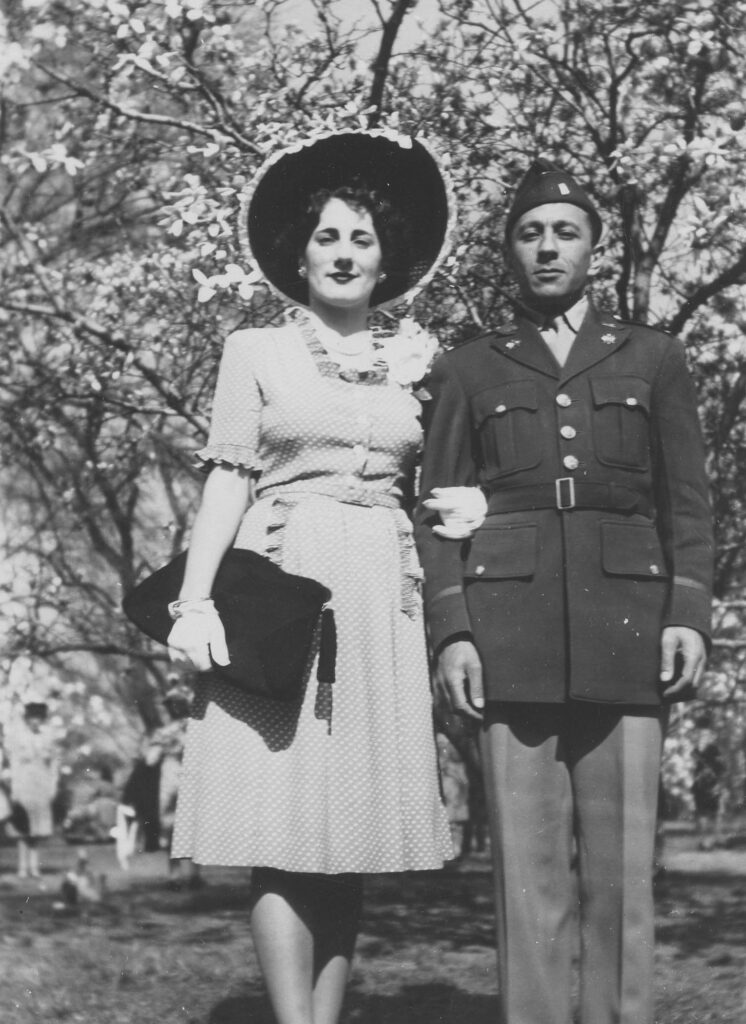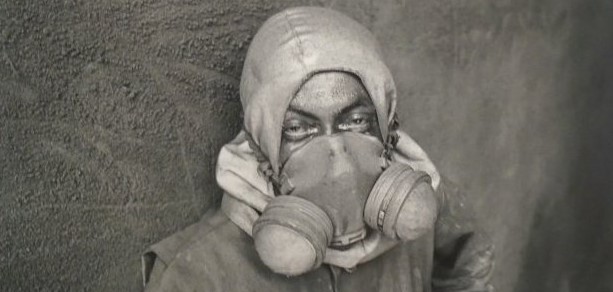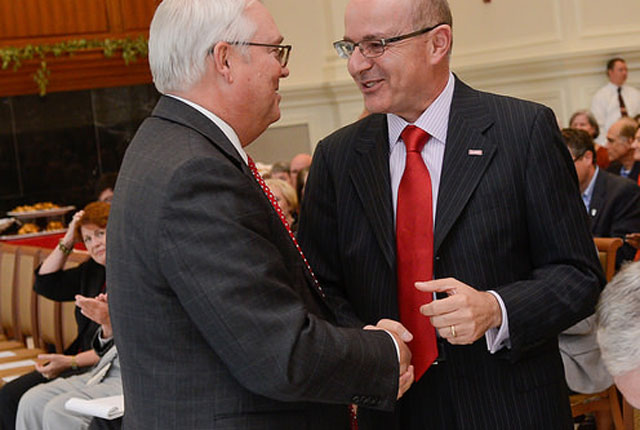NC Museum of History Exhibit Highlights Lebanese Americans’ Stories
The first exhibition to commemorate the history of Lebanese immigrants who have made North Carolina their home since the 1880s will open Saturday, Feb. 22, at the N.C. Museum of History in Raleigh. Cedars in the Pines will highlight the diverse experiences and contributions of Lebanese Americans in the state. The exhibit will run through Aug. 31, 2014, and admission is free.

Researched and developed by the Khayrallah Program for Lebanese-American Studies at NC State University, the multimedia exhibit will feature personal stories, family photographs, home movies, letters, artifacts and audio recordings that bring to life the story of Lebanese immigration in North Carolina. Computer games, Arabic music, a dance floor to learn steps of the dabke, and other interactive components will further immerse museum visitors in the Lebanese immigration experience.
“Cedars in the Pines recounts the hard work, challenges and contributions of three generations of Lebanese immigrants who have adapted to life in North Carolina while struggling to maintain their cultural heritage,” says Akram Khater, Ph.D., Professor of History and Director of the Khayrallah Program for Lebanese-American Studies at NC State University. “Lebanese Americans have left a lasting impression on the state’s civic, social, political, religious and cultural life.”
Cedars in the Pines follows the experiences of Lebanese immigrants from two waves of immigrations. The first wave arrived between the 1880s and the 1920s, when economic decline, famine and war encouraged the Lebanese to leave for the Americas and Africa. Some found their way to North Carolina. Another wave of Lebanese immigrants began to arrive in 1975, when a civil war broke out in Lebanon. This internal conflict and continuing regional tensions have led more Lebanese to emigrate.
Cedars in the Pines brings together their stories in three exhibit sections. A brief description of each follows.
● Journeys explores the many choices associated with immigration. The section includes the history of Lebanon, the reasons the emigrants left home, and the hardships of their long journeys. In the 1880s, thousands boarded steamships for America, where new arrivals faced more challenges in a foreign country. Exhibit items, such as an Arabic Bible that belonged to Side Mack, who immigrated at age 17, help tell these important stories.
● Belonging focuses on the challenges and opportunities of Lebanese immigrants who moved to North Carolina. Khater notes that the newcomers experienced culture shock, struggled against challenges and discrimination, and earned acceptance and success. The section highlights work, school and those who have given back to their communities. Visitors will see an elementary reader printed in Arabic; a Lebanese passport; items from Parker’s Restaurant, a family-run business in Rocky Mount; and other artifacts that recount these experiences.
● Being explores what it means to be Lebanese in North Carolina, centering on home, religion and community. Khater explains that cultural practices like marriage traditions and food, music and religion, along with community organizations, played key roles in their efforts. Some traditions were changed to adapt to American culture, but others were strongly maintained.
In addition, a series of free programs and a festival will augment the exhibit during the spring and summer. Check the museum’s website for details.
“The Museum of History is honored to have been selected by the Khayrallah Program for Lebanese-American Studies as the first venue for this outstanding exhibit on the Lebanese American history, heritage and culture in North Carolina which have added so much to our state,” says Ken Howard, Director of the N.C. Museum of History.
Additional support for the exhibit comes from the N.C. Museum of History; NC State University, Department of History; Triangle Lebanese Association; and N.C. Humanities Council, a statewide nonprofit and affiliate of the National Endowment for the Humanities. Individual and foundation gifts from the Lebanese-American community in North Carolina have also helped fund the exhibit design and installation.
Cedars in the Pines represents one in a series of cultural projects undertaken by the Khayrallah Program for Lebanese-American Studies to research, document, preserve and publicize the history of the Lebanese-American community in North Carolina. The program was established in 2010 at NC State through a generous gift by Dr. and Mrs. Moise Khayrallah and also includes a documentary film, an online digital archive, and a K-12 educational curriculum.
The N.C. Museum of History is located at 5 E. Edenton Street in downtown Raleigh. Hours are Monday through Saturday, 9 a.m. to 5 p.m., and Sunday, noon to 5 p.m.
Based on a news release by Susan Lamb, public information officer, N.C. Museum of History.


